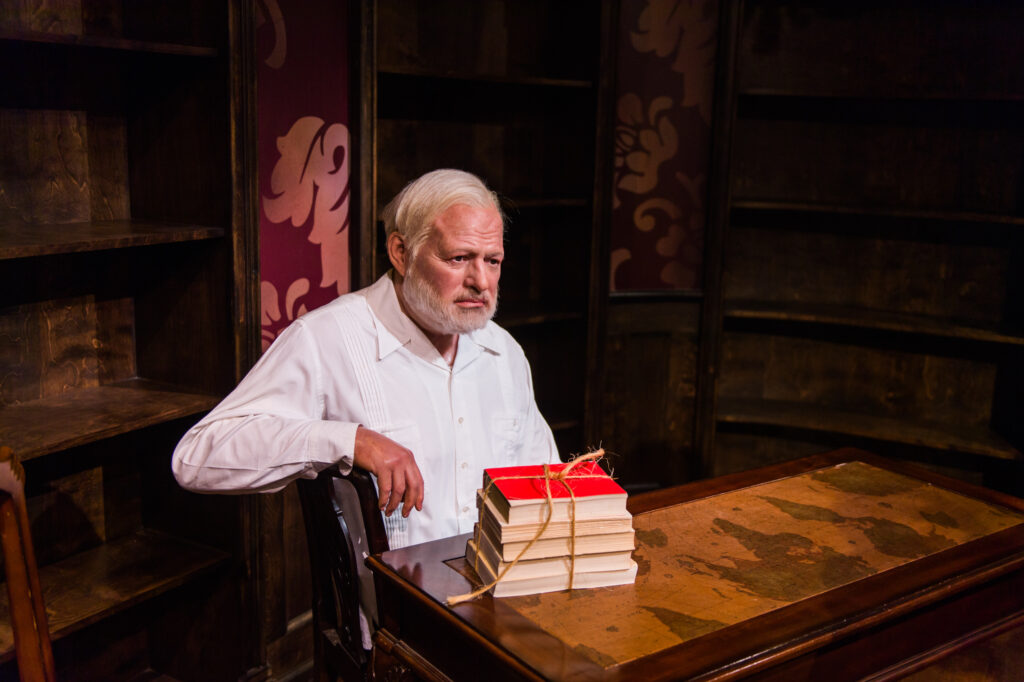One of the exciting things about writers is how their words outlive them, and last words, no matter how silly or vague or unimpressive they are, tend to linger much longer. Ernest Hemmingway’s last words are no different; they have long been sought after by many of his readers.
“Good night my kitten” were the last words the American writer said to his wife Mary Welsh, before committing suicide the next day. The celebrated novelist was 65 years old when he shot himself dead. Although she initially claimed that the incident was an accident, Mary Welsh finally admitted that Ernest Hemingway intentionally killed himself.

Last Words beyond the Grave
Like many other prolific artists of his caliber, Ernest Hemingway left behind some unpublished manuscripts when he died. His fourth wife, Mary Welsh, published his remaining books.
Some of his posthumous books became bestsellers and are still read by many to date. “A Movable Feast”, “Islands in the Stream”, and “The Garden of Eden” are the novels that were published after he died.
Hemingway’s Career
While he was yet 18, he tried to join the US army but could not enlist due to his poor eyesight. Therefore, he found it a good compromise when he could register as an ambulance driver when the Red Cross advertised recruitment.
Ernest Hemingway was exposed to the world’s drudgery, violence, and war at a tender age. All these experiences equipped him with enough to put down in his autobiography.
They also gave him ideas while writing various novels. For instance, after futile efforts combing through dead bodies to find who they could save, he felt inspired to write “Death in the Afternoon.”
While still on the Italian Front, he got severely injured by mortar fire. Rather than mind his wounds, Ernest tried his best to help the wounded soldiers.
This act of gallantry earned him an Italian Medal of Military valor. The incident, however, left him with severe injuries that he had to nurse for six months.
He then went back home to recuperate fully. It was at this point that he began building his career in the journalistic sector.
His Literary Works
In some ways, Ernest Hemingway was the most celebrated author of his time. He wrote heart-wrenching stories that both captured his readers and won him a Nobel Prize in Literature.
The majority of his work was about war and all the hurt and turmoil that come with it. Most of them were inspired by his experiences in his years in the war.
The Tragedy of Love
While he was admitted at Milan, nursing the injuries he sustained from the mortar fire, Ernest Hemingway fell in love with a Red Cross nurse who attended to him while he was convalescent.
Despite the seven years difference in their ages, Ernest believed that he and Agnes von Kurowsky were destined for each other and had planned to marry her once she joined him in America.
His heartbreak was beyond words when he finally received a letter from Agnes, informing him of her engagement to another man. In all his subsequent relationships, Ernest shielded himself from heartbreak by walking out of the relationship before the woman heartbreaks him again by abandoning him.
Hemingway later fell in love again- and again, rather severally, each time marrying the remarkable women he fell for. By the time of his death, Ernest Hemingway had married four wives.
Hardley Richardson
Having first met in Chicago in 1920, the chemistry between Richardson and Hemingway was undeniable. They were married in less than a year and later had a son they named Jack. Their happiness lasted up until they met a journalist by the name of Pauline Pfeiffer.
Pauline Pfeiffer
Richardson grew fond of Pfeiffer. Unbeknown to her, Hemingway was also growing too fond of the younger lady.
Before long, Hemingway was having an affair with Pfeiffer (otherwise known as “fife.). The affair ultimately led to his divorce from Richardson and marriage to Pfeiffer.
Martha Gellhorn
Just as before, Hemingway fell in love with a new woman, this time a novelist and war correspondent that awed him with her wit. Unfortunately, their marriage lasted a handful of years and ended in divorce.
Mary Welsh Hemingway
Hemingway finally got himself a submissive woman who was content in letting him thrive. Their marriage lasted 13 years, and they were still married by the time he committed suicide.
It was to Mary Welsh Hemingway that Ernest Hemingway said his last words. He died a disturbed man, with all the piled up trauma pushing him to pull a trigger to his head.